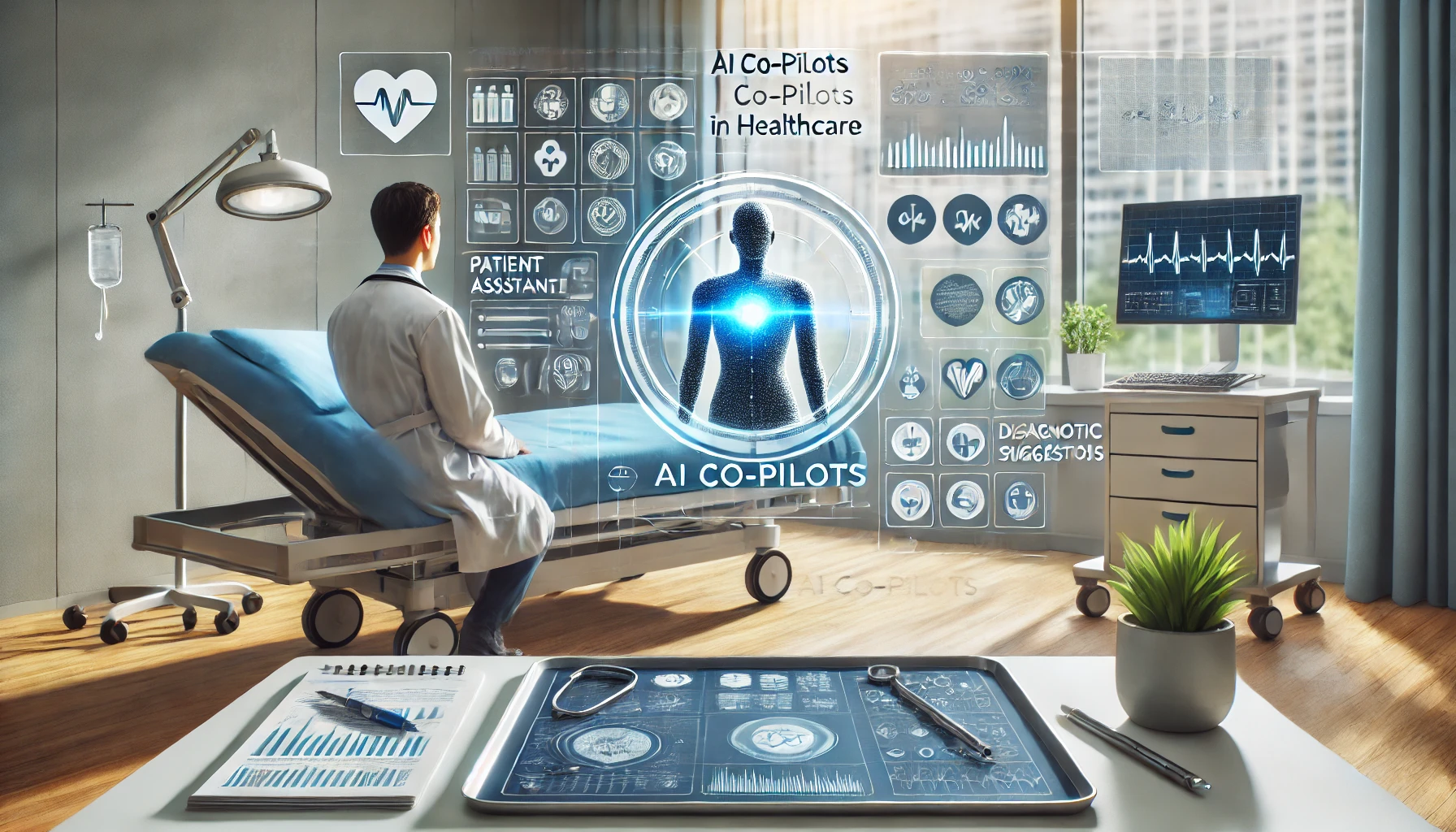As artificial intelligence continues to advance, healthcare is experiencing a transformative wave with the integration of AI-powered co-pilots for doctors. These AI assistants are now becoming essential tools, aiding physicians in managing patient records, automating routine tasks, and enhancing decision-making processes. This integration is not only improving efficiency but also holds the promise of revolutionizing patient care through smarter, data-driven solutions.
The Role of AI Co-Pilots in Healthcare
AI co-pilots serve as virtual assistants for healthcare professionals, designed to take on time-consuming tasks, thereby allowing doctors to focus on patient care. Here are some of the main ways these AI assistants are making a difference:
- Streamlining Patient Record Management: The management of patient records is one of the most time-intensive tasks in healthcare. AI-powered co-pilots can automatically capture and organize data from patient interactions, transcribe notes from doctor-patient consultations, and even summarize critical information for quick reference. This helps in reducing paperwork and ensures that doctors have easy access to accurate patient histories.
- Automating Routine Tasks: Many administrative tasks, such as scheduling, billing, and prescription refills, can now be automated through AI. By taking over these routine responsibilities, AI co-pilots help to reduce the workload of medical staff, enabling them to allocate more time to patient care and reducing the risk of errors in repetitive tasks.
- Enhancing Decision-Making: AI co-pilots can provide real-time insights by analyzing vast amounts of medical data, including lab results, imaging, and patient histories. This analysis supports doctors in making faster, more accurate diagnoses and treatment recommendations. By identifying patterns and suggesting evidence-based options, AI co-pilots assist doctors in navigating complex cases with improved precision.
How AI Co-Pilots Improve Patient Care
AI integration in healthcare is designed with the patient at the center, ensuring that technology serves to enhance the quality and speed of care. Here are some benefits AI co-pilots bring to the patient experience:
- Reduced Wait Times: By automating administrative tasks and streamlining workflows, AI co-pilots can help healthcare facilities operate more efficiently, ultimately reducing patient wait times for appointments, test results, and follow-up procedures.
- Personalized Treatment Plans: AI systems can analyze individual patient data, identifying trends and outcomes from similar cases to offer personalized treatment options. This leads to a more customized approach to patient care, improving outcomes and patient satisfaction.
- Enhanced Diagnostic Accuracy: With AI analyzing complex data sets, the margin for error is significantly reduced. For instance, AI-powered tools can flag abnormalities in medical imaging that might be missed in a standard review, offering doctors a second set of “eyes” to ensure more accurate diagnostics.
Challenges and Ethical Considerations
While AI co-pilots are promising tools, their integration into healthcare also raises challenges that must be addressed for widespread adoption.
- Data Privacy and Security: Protecting patient data is paramount. AI systems rely on access to large volumes of sensitive data, making it essential for healthcare providers to ensure robust security measures and comply with regulations like HIPAA.
- Maintaining Human Oversight: AI co-pilots are tools to aid decision-making, not replace it. Doctors must retain ultimate control over medical decisions, using AI insights as guidance while relying on their expertise for final judgment. Ensuring this balance is critical to preserving trust in healthcare.
- Addressing Bias in AI: AI algorithms are only as good as the data they’re trained on. If AI systems are trained on biased data, they can inadvertently perpetuate biases in treatment recommendations. Continuous monitoring and updating of AI systems are essential to minimize this risk.
The Future of AI Co-Pilots in Medicine
The role of AI in healthcare is only expected to grow. In the near future, we may see AI co-pilots with capabilities for predictive analytics, which could help doctors anticipate patient needs before they arise. For instance, by identifying early warning signs in a patient’s health records, AI could suggest preventative measures that help avoid serious health issues down the line.
As AI co-pilots continue to develop, they have the potential to bring precision medicine to new heights, ensuring that each patient receives care tailored to their unique medical history and genetic profile. Furthermore, the data insights provided by these systems could help healthcare institutions optimize resource allocation, reducing costs while enhancing patient outcomes.
AI co-pilots are shaping up to be invaluable partners for doctors, transforming the way healthcare is delivered. By handling time-consuming tasks, improving diagnostic accuracy, and offering personalized treatment insights, these AI assistants are empowering doctors to focus on what they do best: caring for their patients. As this technology evolves, the healthcare sector stands on the brink of a new era—one where AI and human expertise work together to offer smarter, faster, and more effective healthcare for all.




